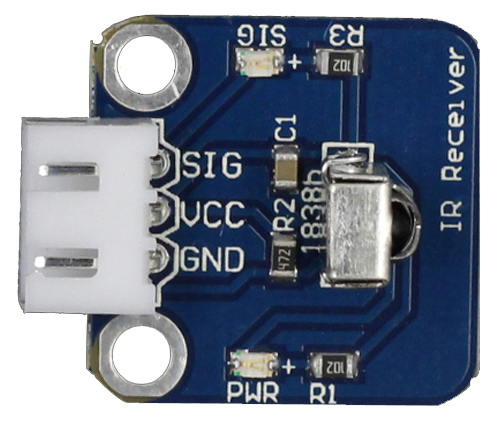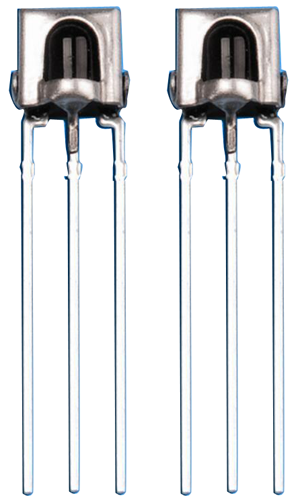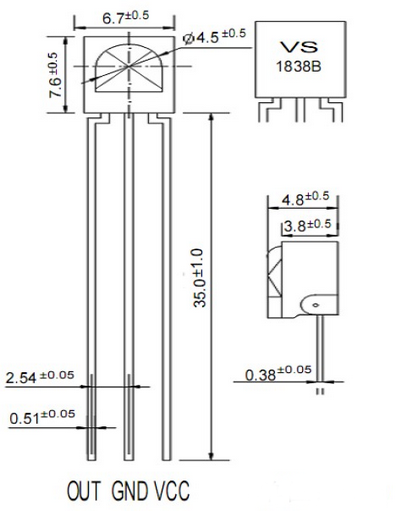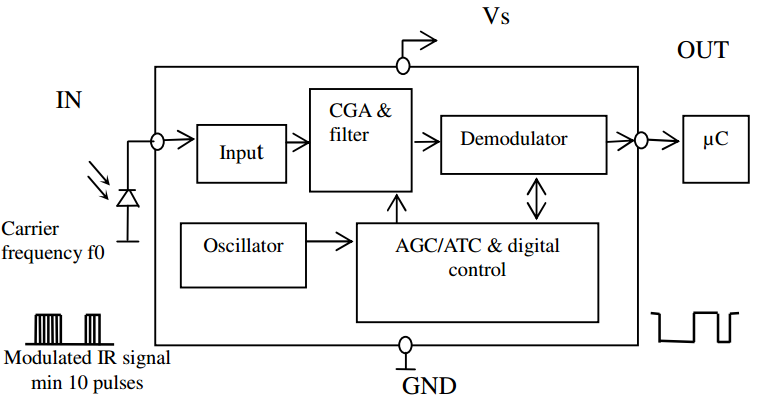Difference between revisions of "IR Receiver Module"
(→Resource) |
|||
| Line 30: | Line 30: | ||
‧ Pb free and RoHS compliant.<br> | ‧ Pb free and RoHS compliant.<br> | ||
=='''Resource'''== | =='''Resource'''== | ||
| − | [http://www.lengeek.com/wiki/index.php?title=File:IR-Receiver_datasheet.pdf][[File:PDF.jpg] | + | [http://www.lengeek.com/wiki/index.php?title=File:IR-Receiver_datasheet.pdf IR-Receiver_datasheet] [[File:PDF.jpg]] |
Revision as of 02:43, 23 March 2016
Contents
Description
The infrared-receiver Module use the 1838b as the infrared receiving head which receives infrared signals and can independently receive infrared ray and output signals compatible with TTL level. It's similar with a normal plastic-packaged transistor in size and it is suitable for all kinds of infrared remote control and infrared transmission.
The schematic diagram of the Module is as follows:
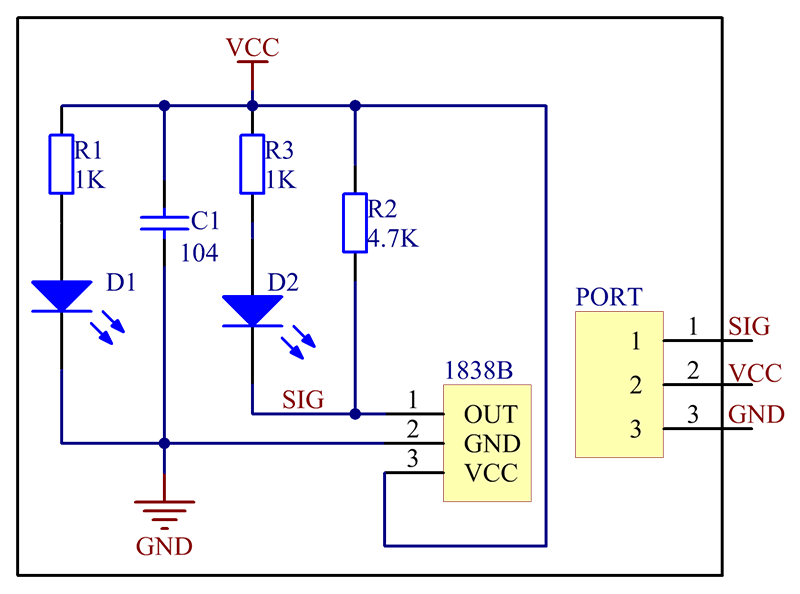
Pin Description of 1838b
Block Diagram
Application Circuit
Applications
• Light detecting portion of remote control
• AV instruments such as Audio, TV, VCR, CD, MD, etc.
• Home appliances such as Air-conditioner, Fan, etc.
• The other equipments with wireless remote control.
• CATV set top boxes
• Multi-media Equipment
Features
‧ High protection ability against EMI.
‧ Circular lens for improved reception characteristics.
‧ Line-up for various center carrier frequencies.
‧ Low voltage and low power consumption.
‧ High immunity against ambient light.
‧ Photodiode with integrated circuit.
‧ TTL and CMOS compatibility.
‧ Long reception distance.
‧ High sensitivity.
‧ Pb free and RoHS compliant.
